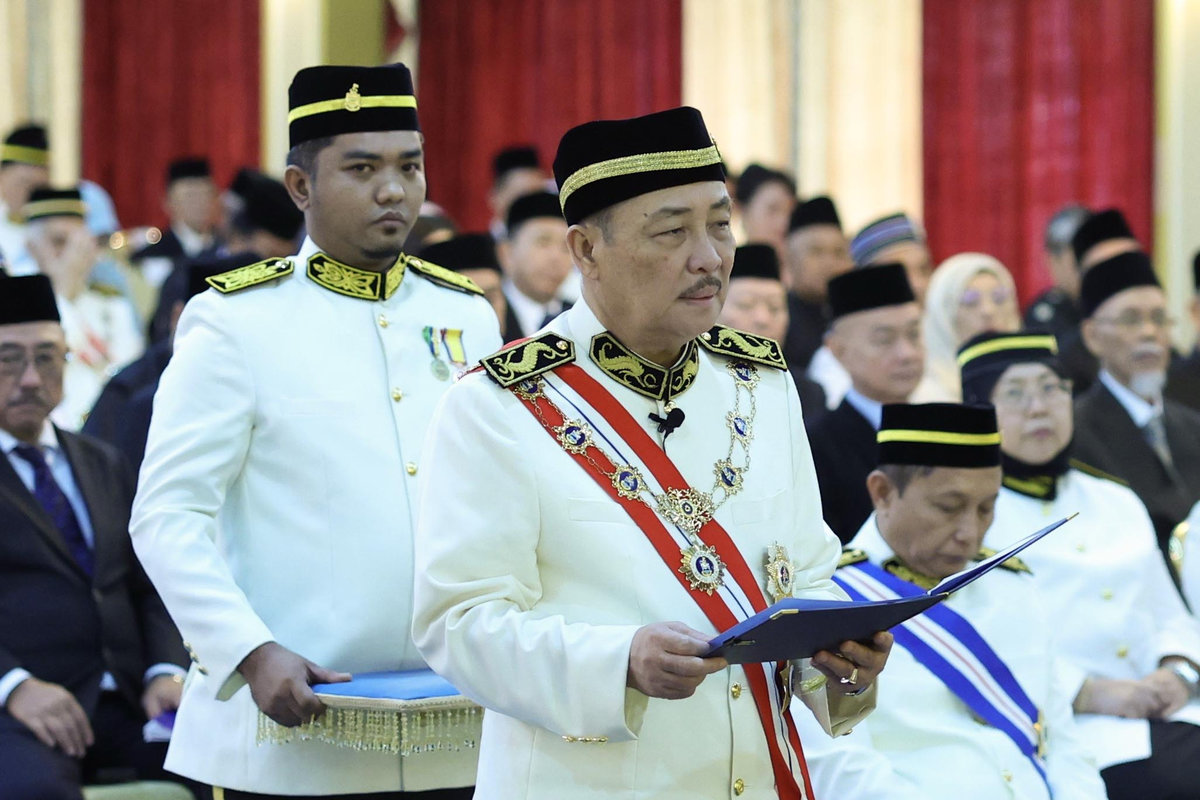KOTA KINABALU: Malaysia’s success in fending off foreign claims over Sabah reaffirms the state’s sovereignty under the Federation of Malaysia and offers assurance and relief to the people of Sabah, said Chief Minister Datuk Seri Hajiji Noor.
He expressed gratitude to the federal government and Prime Minister Datuk Seri Anwar Ibrahim for the government’s commitment to protecting the rights and sovereignty of the state.
He said that the state government greatly values the various forms of assistance and initiatives provided by the federal government, particularly in areas such as infrastructure, healthcare, education, and security.
“The strong ties and close cooperation with the federal government will continue to be upheld to ensure that Sabah is not left behind in national development,” he said.
Hajiji said this in his address at the 2025 Sabah State Honours and Awards investiture ceremony held at Istana Seri Kinabalu today, where 60 individuals were conferred state honours, awards and medals by the Yang Dipertua Negeri of Sabah, Tun Musa Aman.
Hajiji also gave his assurance that the implementation of inclusive and comprehensive development policies under the Sabah Maju Jaya (SMJ) roadmap will be further enhanced as part of ongoing efforts to ensure the progress and well-being of Sabahans.
He said that since its introduction, the road map has had a significant impact, particularly in areas such as economic recovery, investment, agriculture, human capital development, and the overall well-being of the people.
He added that the state government is focusing on the development of the agricultural sector, which plays a crucial role in ensuring food security in Sabah, noting that the key initiatives include the establishment of the Sabah Padi and Rice Board (LPBS) and the launch of the Paddy Crop Takaful Scheme (STTP), aimed at raising the state’s rice self-sufficiency level from the current 24 per cent to 60 per cent by 2030.
Hajiji also said the state government has approved the establishment of the Sabah TVET Council to coordinate and monitor technical and vocational education and training in line with current industry needs.
“We want to ensure that Sabah’s youth are equipped with the knowledge and skills needed to contribute to the development of the state and the nation,” he added.









